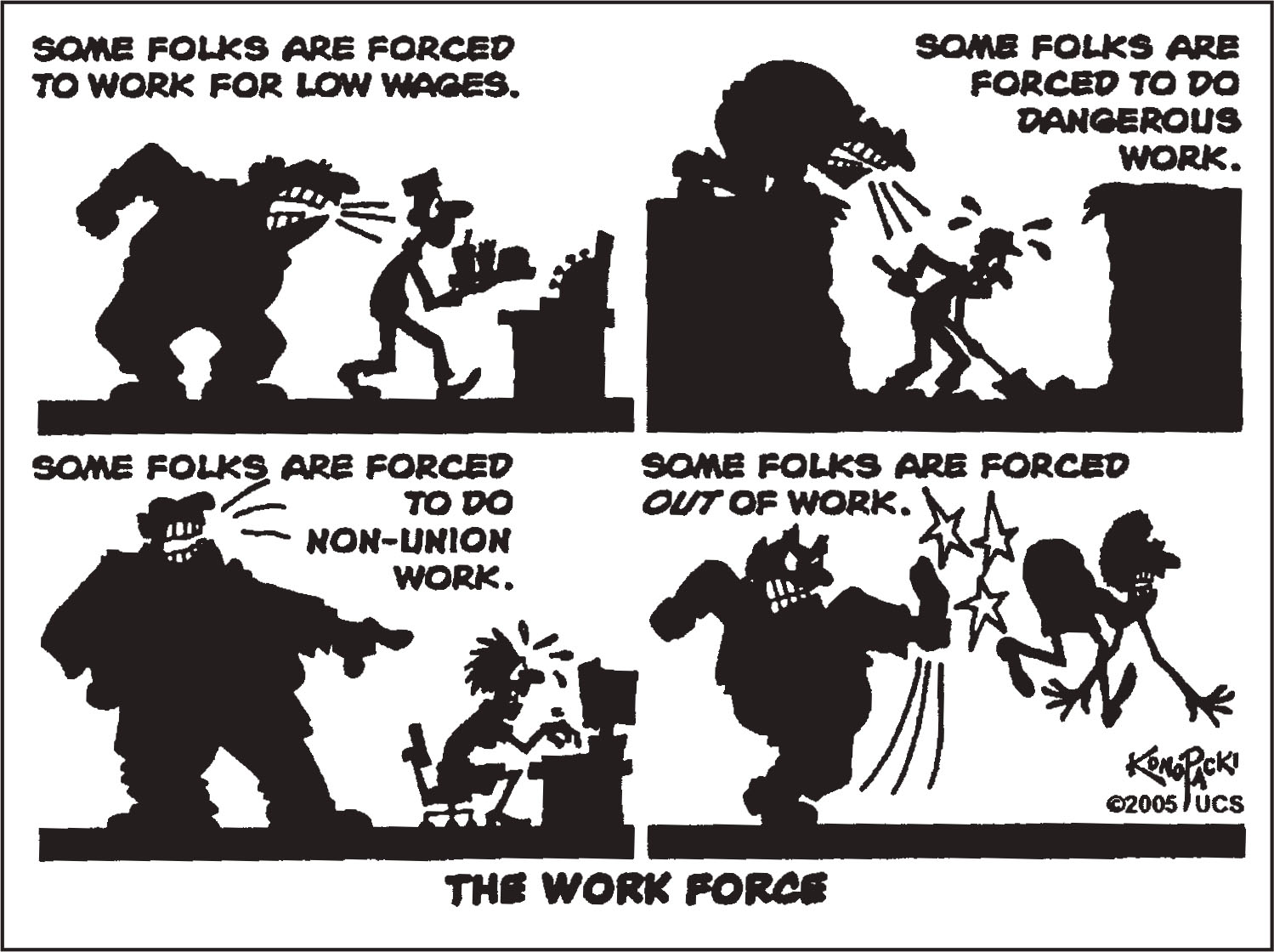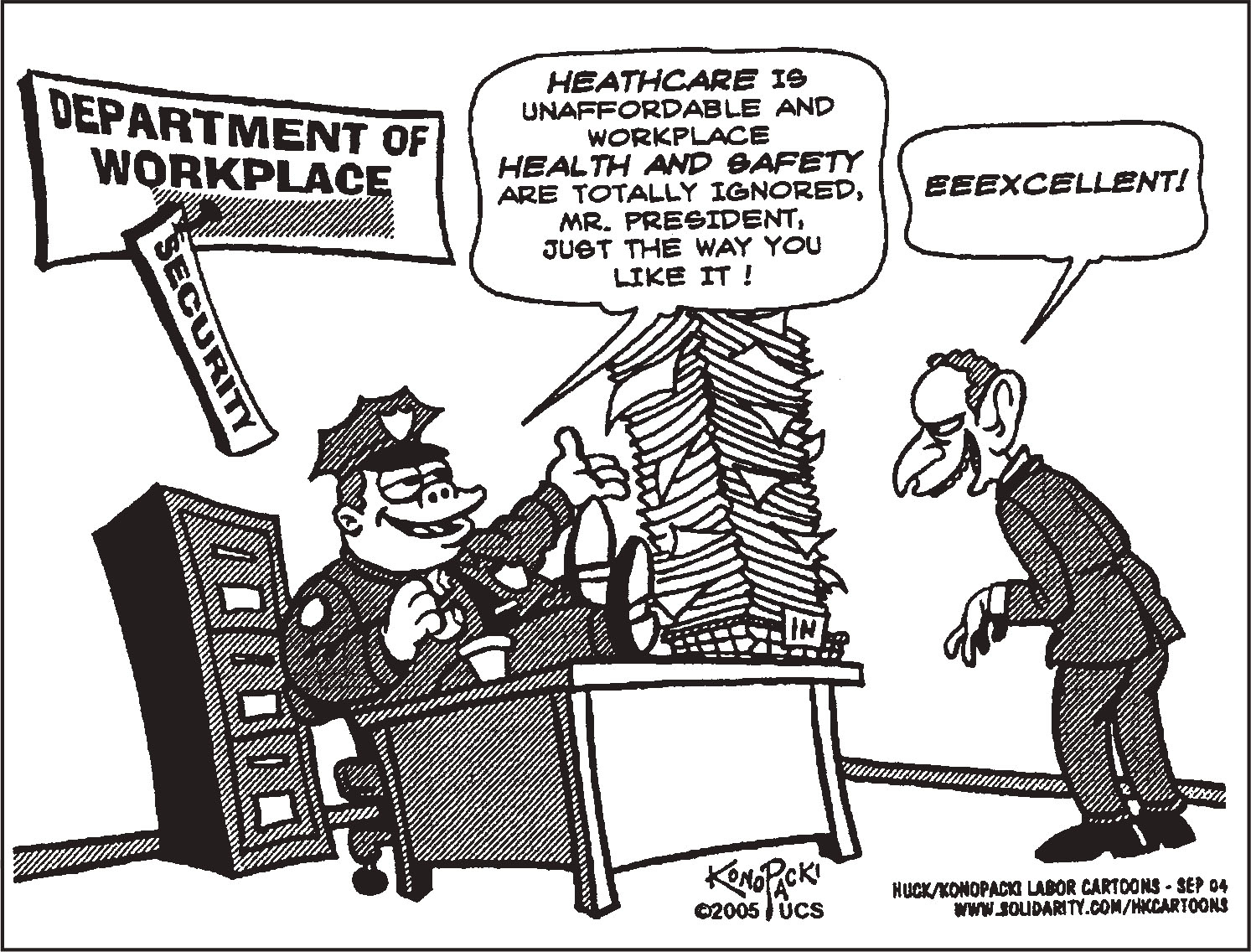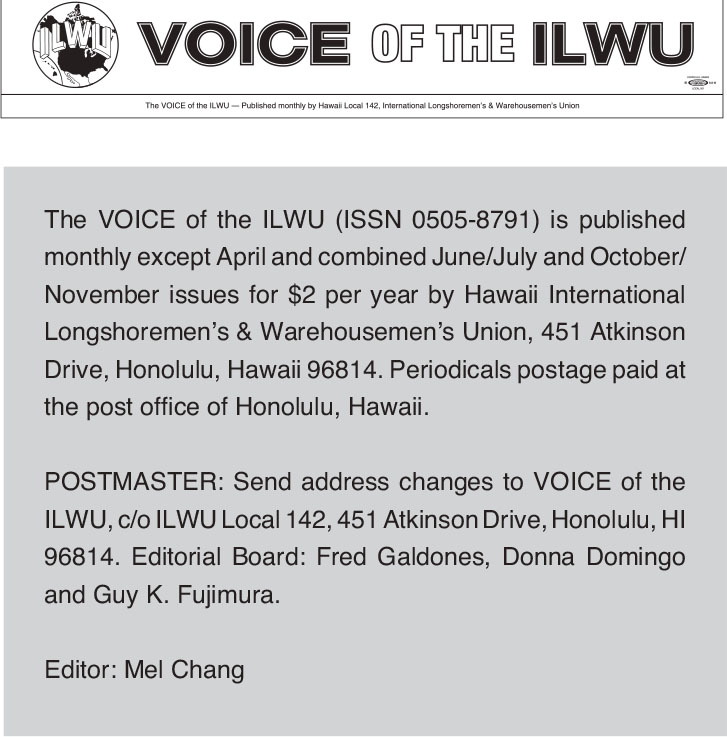As a rank-and-file union, it is ILWU members who set the programs and policies of the union. They do this by sending their representatives to a special meeting—called a Convention—which is held every three years. The last Convention of ILWU Local 142 was held from September 15-19, 2003 in Honolulu. The next Convention will be held in September 2006.
The officers of the union are then obligated to carry out the programs and policies of the Convention. The union’s policy on safety and health is spelled out in the “Report on Contract Administration /Safety and Health.” Following is the section from that report that deals with safety.
Report on safety and health:
The program The current program is for each unit to strive to have a safety and health committee. The unit should designate the members of the safety and health committee. It shall be advisory to the Unit Executive Board (UEB) and the agenda of the UEB meetings should include Safety and Health. The unit’s Safety and Health Committee is to provide advice and make recommendations to management on safety and health matters.
Each Division shall have a Safety and Health Committee. It shall assist units in the Local's Safety and Health program. The Local Safety and Health Administrator shall be the Local Contract Administrator. He shall assume
the duties of the safety and health administrator, carry out the Local's program and coordinate the work of the Divisions and Units.
Purpose
The Occupational Safety and Health Act and the subsequent creation of the Occupational Safety and Health Administration (OSHA) has given workers a tool to enforce their rights to a safe and healthy workplace. Even
though the State of Hawaii has been given the power to enforce and regulate the OSHA Rules and Regulations, this does not mean a guaranteed safe and healthy environment at the job site.
The employer is responsible for providing a safe and healthy workplace and some CBAs specifically state that the employer has that burden. Although the Union does not have the obligation or authority to provide a safe and healthy place of employment, a strong and effective Union safety and health program can aid in protecting the
membership from harm.
In addition, it is not uncommon in contract administration (grievance handling) to find that the safety issue is raised when a grievant was involved in an accident or refused to obey an order on safety grounds. A common employer defense, is that the unsafe nature of the workplace was never raised before, and therefore it is not a credible argument now, when the Grievant is being disciplined. The establishment of an effective safety and health program can document reports or concerns about unsafe or unhealthy conditions before a member is
disciplined.



Contract language on safety and health All contracts should include a section on safety and health. As an example, the following: “The Company agrees to provide safe working conditions and facilities and to maintain all
equipment in safe working order. No employee shall be required to perform a task that endangers his health or safety.” This provides a specific section in the CBA which can be cited as being violated when a grievance is being filed over an unsafe or unhealthy condition at the workplace.
Another possibility is to propose contract language regarding participating in Union/Employer safety committees. For example:
“A safety committee will be established with an equal number of representatives from the Union and the Company. The safety committee will meet regularly to address all health and safety measures and make recommendations to the Company to immediately correct any unsafe or unsanitary conditions. A report or meeting minutes of the safety committee will be posted. The final decisions regarding what action will or will not be taken (policy formulation, implementation, etc.) shall be solely the Company's responsibility.”
It is important to make it clear that for safety committees where the Union members are part of the committee, that the committee only makes recommendations, that it is not authorized or obligated to discipline employees for
safety violations, and that ultimately, the actions taken are the employer’s responsibility and not the Union’s. ◆
[from Twenty-Third Convention Proceedings, International Longshore and Warehouse Union ILWU Local 142, Honolulu, Hawaii, September 15-16-17-18-19, 2003]

